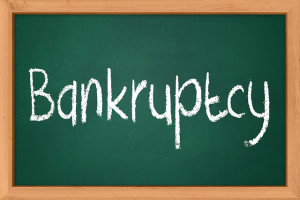Meta Description: Filing for Chapter 7 bankruptcy after shutting down your business may seem like the best option, but there are three key factors to consider: assets, taxes, and other non-dischargeable debts. Consult with a lawyer to determine what’s best for you.
Introduction:
Closing down a business can be a difficult and emotional experience. After all the hard work and effort put into making it successful, it can be tempting to file for Chapter 7 bankruptcy for a fresh start. However, it’s important to consider the consequences before making a decision. In this blog post, we will discuss three factors to consider when deciding whether Chapter 7 bankruptcy is the right choice for you after closing your business.
-
Business Assets:
Chapter 7 bankruptcy is divided into two categories: “no asset” and “asset.” In a “no asset” case, the Chapter 7 trustee decides that none of your assets are worth taking and selling to pay creditors. On the other hand, if your recently closed business has assets that are not exempt and are worth the trustee’s effort to collect and liquidate, it’s important to discuss with a lawyer whether Chapter 7 is in your best interest compared to what would happen to those assets in a Chapter 13 case.
-
Taxes:
Closed-business bankruptcy cases often involve tax debts. While some taxes can be discharged in a Chapter 7 case, most cannot. Chapter 13 is often a better way to deal with taxes as it will depend on the type of tax and a series of other factors such as the time the tax became due and whether a tax return was filed.
-
Other Non-dischargeable Debts:
Closed-business bankruptcies can result in more creditor challenges to the discharge of debts compared to other bankruptcy cases. These challenges are usually based on allegations of fraud against the business owner. Depending on the nature of the allegations, Chapter 13 may give you certain legal and tactical advantages over Chapter 7.
Conclusion:
Filing for Chapter 7 bankruptcy after closing down your business may seem like the best option, but it’s important to consider all factors before making a decision. The three factors discussed in this blog post – business assets, taxes, and other non-dischargeable debts – can play a significant role in determining what is best for you. It’s recommended to consult with a lawyer to help you make an informed decision.
If you are considering bankruptcy, it’s worth discussing your options; make a free phone appointment with Jennifer N. Weil, Esq. by clicking here.


